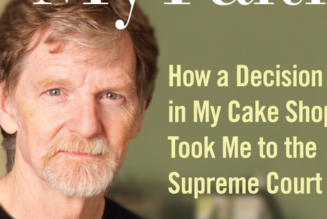By Fr. Jerry Pokorsky ( bio – articles – email ) | Mar 25, 2024
We are all familiar with the saying from the classic Godfather movie. Whacking an enemy is “business, not personal!” There is merit in invoking good business practices in our national—and international—controversies. But neglecting the personal consequences of our choices is a mistake.
When Mario Cuomo, the pro-abortion Catholic, was the governor of New York in the early 1990s, then-auxiliary Bishop Austin Vaughan of the Archdiocese of New York warned that he risked the fires of hell for his policies. Governor Cuomo misrepresented the warning and said the bishop “condemned [him] to hell.” In private conversation, a wise theologian recognized a positive aspect of the governor’s clever distortion. “Well, he’s starting to get the message.” The bishop reminded Cuomo he was personally responsible for his policy and risked the just consequences.
Church authorities usually issue orthodox policy statements in response to pro-abortion advocacy. But combined with other non-binding statements (e.g., on immigration), the unintended effect is to politicize—not personalize—Catholic moral doctrine. A politicized moral doctrine doesn’t necessarily mean the pro-life exhortations of the hierarchy are not accurate. But politicians and the general public receive the teachings as policy statements, comparable to planks in the platform of a political party. Thomas More’s slanderer, Richard Rich, died peacefully in his bed. Andrew Cuomo—also a pro-abortion governor— eulogized his father during Mario’s beautiful Catholic funeral.
A politicized moral doctrine deflects us from the personal consequences of sin and contributes to the routine moral Manicheanism of conflict. Our side is good, and our opponents are pure evil. In war, we celebrate our bravery and sacrifices and condemn an enemy’s atrocities. The complexities of the justice of entering into a war aside, many decades pass before we develop an understanding of the personal atrocities that took place on all sides during our modern wars.
Antagonists—foreign and domestic—usually think in binary terms concerning the wars in Ukraine and Gaza. The default American position is the unconditional support of Ukraine and Israel. Those who suggest that the Americans and NATO may have provoked the Russian invasion of eastern Ukraine are “Putin stooges.” Some agents may be Putin propagandists. But others who lament NATO expansion are also distressed by the Russian invasion. Those who suggest that the Israeli Defense Forces are indiscriminately killing and starving civilians routinely suffer accusations of “anti-Semitism.” Many people are Nazi-like antisemites. But others concerned with the killing of Gaza’s civilians also deplore the brutal Hamas attacks and hostage-taking.
Suppressing evidence is a weapon in the Manichean approach to waging war. Sufficient evidence to enable judgments is hard to establish from the comforts of living in a nation that is an ocean apart from hostilities. We depend upon cable networks, internet news, and social media for our information. Although we’ve learned to be suspicious of the media, we are susceptible to the propaganda of repeated sound bites.
Church authorities have a right to political opinions as citizens. But they wade into questions of war at the risk of partisanship, real or apparent. Church leaders are also susceptible to sloganeering and ideological sound bites. The lack of sufficient evidence to evaluate the actions of nations in war also tempts Churchmen to think in binary and tribal terms that harm their Catholic prophetic responsibilities.
If the preponderance of evidence suggests violations of the Ten Commandments and the precepts of natural law, concern for the salvation of souls requires Christian witness. Clerics rarely invoke the personal consequences of obeying—or disobeying—the Decalogue and the Church’s rich traditional moral theology. Indeed, many high-ranking Church officials depersonalize traditional Church teaching by ignoring or denying the reality of hell. The denial neglects God’s justice and our personal responsibility for unrepented sins.
In matters of war, Church leaders should appeal to the consciences of individual statesmen and soldiers. The business of war is personal. Church teaching accentuates personal responsibility, virtue, the sting of conscience, and the consequences of mortal sin. A mortal sin is an action—thought, word, or deed (not a feeling)—that is a grave offense against God. Mortal sin is always personal and includes sufficient evidence of evil choices, full knowledge, and free consent. Statesmen, soldiers, and others who commit mortal sins without repentance risk the fires of hell.
Every statesman should be wary of these mortal sins:
- Various forms of injustice that provoke wars are mortal sins.
- Entering into an unjust and aggressive war while neglecting diplomacy to resolve differences is a mortal sin.
- Categorically refusing to negotiate an end to hostilities is a mortal sin.
- Directing soldiers to kill innocent civilians and take hostages is a mortal sin.
- The reckless endangerment of soldiers is a mortal sin.
- Directing attacks without due regard for—or abusing—the principle of double effect is a mortal sin.
Imagine sitting at a negotiation table and acknowledging that these injustices have eternal consequences for all actors.
Every soldier should be wary of these mortal sins:
- Inhumane treatment of non-combatants, wounded soldiers, and prisoners is a mortal sin.
- The extermination of a people, nation, or ethnic minority—genocide—is a mortal sin.
- Participating in the indiscriminate destruction of whole cities or vast areas with their inhabitants is a mortal sin.
- Participating in starvation tactics to subdue a population is a mortal sin.
- The use of atomic, biological, or chemical weapons to commit war crimes is a mortal sin.
Imagine discussing war crimes with a soldier with post-traumatic stress syndrome and reminding him that “God sent the Son into the world, not to condemn the world, but that the world might be saved through him.” (Jn. 3:17)
Awareness of the personal consequences of sin helps us restore our understanding of human freedom, responsibility, God’s justice, and mercy. Our opponents are people—not things—with rights and duties. The prospect of hell disturbs consciences. “I don’t know if you are indiscriminately killing civilians with your hellfire missiles, but if you are, you risk the fires of hell.”
Sound Off! CatholicCulture.org supporters weigh in.
All comments are moderated. To lighten our editing burden, only current donors are allowed to Sound Off. If you are a current donor, log in to see the comment form; otherwise please support our work, and Sound Off!

There are no comments yet for this item.








